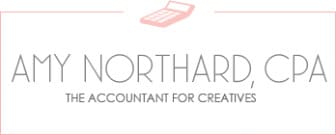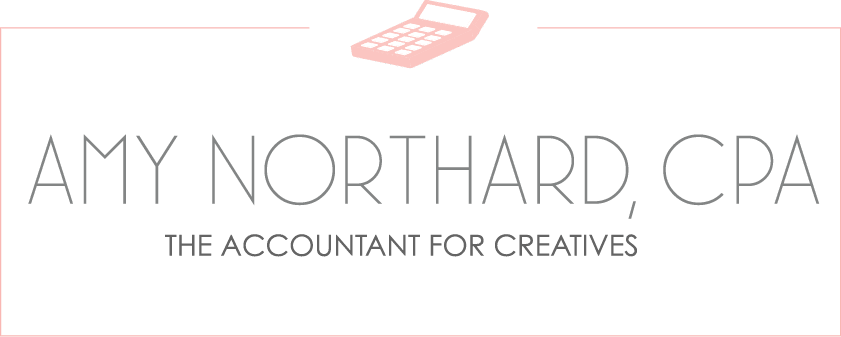I LOVE paying taxes! Ok, I may have embellished this statement a little bit. But, the bottom line is – if you’re paying taxes, you’re making money!
As a small business owner, I can’t say I’m the happiest about the amount of money that goes to taxes, so I make every effort to lower my taxable income. Today, I’m going to share a few ways that you can lower your taxable income.
Expenses are not the answer.
Every so often a client will ask me if they should make a big purchase (buy a new camera, subscribe to a new online course, buy the new fancy tool) at the end of the year so that they don’t have to pay taxes. I always answer this question with one of my own – do you need this to succeed and grow your business, or are you trying to avoid paying taxes on your income?
Ultimately we became small business owners to sustain our lives doing what we love. This means making enough money to support ourselves and have a little extra profit left over for growing our business and planning for our future.
Are you running a business or a hobby?
If you have not turned a profit in at least three of the prior five years, the IRS can categorize your business as a hobby. If the IRS considers your business a hobby, it would prevent you from claiming a loss related to the business. There are some exceptions to this rule, but I’m confident that if you’re reading this post you do not work your butt off all year just for your business to be considered a hobby. There are better ways to lower your taxable income without increasing your expenses at the end of the year.
3 Simple Ways To Lower Your Taxable Income
If you have “extra” money at the end of the year and want to do something with it besides rack up more expenses or pay the government taxes on the profits, here are my recommendations.
Contribute to your retirement.
As a small business owner, you may consider contributing to a SEP IRA, solo 401k or a SIMPLE IRA. All of these plans are great options for lowering your taxable income while saving for your (and your employees’) futures. Choose a SEP IRA if you are a small business owner who wishes to make a tax-deductible contribution into an IRA for yourself and on behalf of your employees. Choose a SIMPLE IRA if you are a business owner with a workplace of 100 or fewer employees and will fund the bulk of their retirement. Choose a solo 401k if it’s just you.
Contribute to a health savings account.
This may not be the sexiest of options, but if you’ve ever experienced medical bills, you know how important it is to have an emergency fund dedicated solely to medical expenses. If you have a high-deductible medical plan, you may have the option to contribute to an HSA. The unused contributions can roll over indefinitely and grow tax-free.
Further your education.
The best business owners are lifelong learners. If you took time throughout the year to learn a new skill, you may be eligible for the Lifetime Learning Credit. This credit is worth a maximum of $2,000 per year and helps pay for college and educational expenses that improve your job skills. An eligible educational institution is any college, university, vocational school, or other postsecondary educational institution eligible to participate in a student aid program administered by the U.S. Department of Education.
Invest in your children’s education.
Almost every state now offers a 529 plan. This plan is designed to help families pay for future expenses associated with a college or other qualified post-secondary training. Although contributions are not deductible, earnings in a 529 plan grow federal tax-free and will not be taxed when the money is taken out to pay for college. In addition to the federal tax savings, over 30 states currently offer a full or partial tax deduction or credit for 529 plan contributions.


Hi Amy
I have a question on the further your education option. I already have a degree but I am still continuing my education in a different field of interest. Am I eligible for this credit
Thank you
Shadia
Hi Shadia! The IRS has a great article on Tax Benefits for Education. Here’s an excerpt from the qualifying work-related education:
You can deduct the costs of qualifying work-related education as business expenses. This is education that meets at least one of the following two tests:
However, even if the education meets one or both of the above tests, it is not qualifying work-related education if it:
You can deduct the costs of qualifying work-related education as a business expense even if the education could lead to a degree.